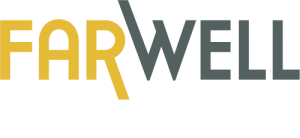Discover advisor articles and other FarWell resources.
Go far. Do well. Call (800) 987-2015
Business Process Tasklist for Teams Experiencing Downtime

Project Portfolio Management: Ensuring Portfolio Value during the Covid-19 Outbreak
April 16, 2020
Change Readiness | How to Prepare Your Organization for New Priorities and Goals
May 11, 2020The sudden downturn in the economy due to COVID-19 has impacted everyone. Some people are working harder than ever on business issues they never anticipated. Others have extra time they never expected. This is a historic crisis but is also a momentary pause that companies can use to address internal opportunities.
Chances are, you’ve seen funny memes during quarantine. One of my favorites is, “You said you would clean the house if you only had time… That was a lie.” Hopefully this does not apply to the process improvement “housekeeping” tasks that you never had time to address when you were fully engaged at work.
Why Documenting Business Process During Business Downtime Will Make Your Job Easier
- Documentation speeds up the employee training and onboarding process.
- Documentation improves process execution.
- Documentation will help align your systems.
Keeping your process documents updated will help you retrain employees more quickly when you return to work. It will help you onboard employees faster and improve process execution. Documenting and communicating these processes will facilitate aligning your systems as well.
These process documents apply to all functions including HR, Finance, Manufacturing, Marketing and Sales. They should cover topics like new product development, onboarding new employees, writing expense reports, running a machine, and processing a sales contract.

Remote Process Documentation Housekeeping Checklist
Define Document Owners
The document owner is responsible for approving any changes and for regular document reviews.
Review Documents and Ensure They are Current
Documents should be dated, reviewed, and updated on a regular basis. The document owner should be responsible for this review. The owner can assign others to review the document as well, but they are ultimately accountable. The document should include a revision/review history with date and initiator listed.
Create New Procedures
Identify work instructions that don’t exist and assign someone to write them. Change is constant, and you probably are doing something new since you wrote your initial documents. You may have an expert who is the only one who performs a specific function. Make sure those procedures are documented in case of unforeseen turnover.
Number Your Documents
This will make them easier to reference and link to other documents and make them easier to find.
Define a Common Template Format
This will make them easier to write and to use. The contents should include the following: title, scope, reference number, author, and revision history at a minimum. Once this is done, update your procedures to support the new format.
Create Single Source of Truth (SSOT)
Define a single location to store the documents. Many companies make the mistake of storing documents in multiple shared folders or applications like MS SharePoint, MS Teams and ERP systems to name a few. This forces employees to search multiple areas to find the document they are looking for. If this is the case, now is a good time to define that one location and move all your process documents there.
Ensure Documents Are Accessible
Make it easy for teams to access the procedures needed to perform that work function at the point of use. New employees benefit from this effort the most since they need to reference procedures more frequently. Remember to grant access to restricted folders as part of the onboarding process.
Organize to Relieve Stress
Just like housekeeping, documentation isn’t always fun, but it’s a great activity to complete when you’re unable to leave your home. You will feel much better when you’re done, and everything is organized and in its place.





